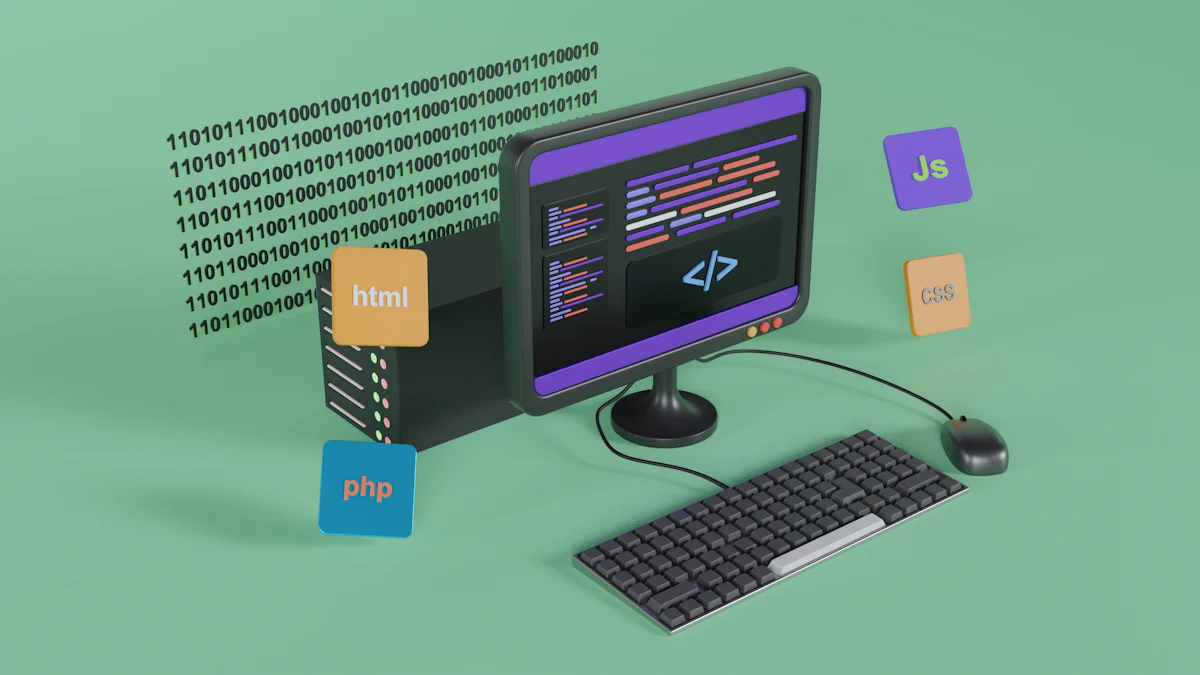Help Your Kids with Computer Science

Computer science opens a world of possibilities for kids. Early exposure to computer technology boosts creativity and problem-solving skills. Kids learn computer coding and programming, which are vital for future success. Parents play a crucial role in this computer science journey. Get involved and explore digital tools together. Celebrate achievements and encourage curiosity. This approach builds confidence and strengthens the parent-child bond. Embrace the digital age and help your kids thrive in computer science.
Understanding the Basics of Computer Science

Introduction to Coding
What is Coding?
Coding lets you create instructions for computers. Kids can use coding to build games, apps, and websites. Coding helps develop problem-solving skills. Understanding coding opens doors to exciting opportunities in the digital world.
Popular Coding Languages for Kids
Scratch offers a fun way to learn coding. Scratch uses colorful blocks to teach logic and structure. This visual-based language reduces errors and boosts confidence. Python is another great choice. Python's easy-to-read syntax makes it perfect for beginners. Kids find Python user-friendly and intuitive. Both languages provide a solid foundation for future learning.
Exploring Computer Hardware
Basic Computer Components
Computers consist of several key parts. The CPU acts as the brain, processing information. The monitor displays images and text. The keyboard and mouse allow interaction. Understanding these components helps demystify how computers work.
Hands-on Activities with Hardware
Hands-on activities make learning about hardware fun. Kids can build simple circuits using kits. Disassembling old computers reveals internal parts. These activities spark curiosity and deepen understanding. Encourage exploration and creativity with hardware projects.
Building on Computer Science Foundations
Introduction to Algorithms
Algorithms form the backbone of computer science. Kids can learn algorithms through simple exercises. These exercises break down complex problems into smaller, manageable tasks. Understanding algorithms boosts problem-solving skills. Kids can apply these skills in various aspects of life.
Simple Algorithm Examples
Simple algorithms make learning fun. Sorting a list of numbers is a classic example. Kids can practice sorting with everyday objects like cards or blocks. Another example involves finding the shortest path in a maze. These activities teach logical steps and decision-making. Kids gain confidence as they solve algorithm challenges.
How Algorithms Impact Daily Life
Algorithms play a big role in daily life. Search engines use algorithms to find information quickly. Social media platforms rely on algorithms to show relevant content. Online shopping sites suggest products based on algorithms. Understanding these processes helps kids navigate the digital world. Kids become more informed users of technology.
Problem-Solving Skills in Science
Problem-solving is a key skill in computer science. Kids develop logical thinking through coding and algorithms. Logical thinking involves breaking problems into parts. Kids learn to analyze each part and find solutions. This approach applies to both computer science and real-life situations.
Encouraging Logical Thinking
Logical thinking requires practice. Kids can start with puzzles and brain teasers. These activities challenge the mind and promote critical thinking. Coding exercises also encourage logic. Kids write code to solve specific problems. Each successful solution builds confidence and skill.
Fun Problem-Solving Activities
Fun activities make problem-solving enjoyable. Kids can engage in coding games that require strategy. Board games like chess also enhance problem-solving abilities. Science experiments offer hands-on problem-solving experiences. Kids learn to hypothesize, test, and conclude. These activities foster curiosity and creativity.
Navigating the Digital World

Understanding Cyberbullying
Cyberbullying affects many kids today. Recognizing signs helps you take action. Look for changes in mood or behavior. Kids might avoid social media or seem upset after using devices. Open conversations about online interactions encourage honesty.
Recognizing Cyberbullying
Cyberbullying includes mean messages or spreading rumors online. Kids might face exclusion from online groups. Encourage kids to share any uncomfortable experiences. Awareness helps in identifying these issues early.
How to Respond and Prevent
Teach kids to "stop, block, and tell." Stop responding to bullies. Block them on all platforms. Tell a trusted adult immediately. Reporting cyberbullying to authorities can also help. Discuss online dangers regularly to build trust and understanding.
Safe Gaming Practices
Gaming offers fun and learning opportunities. Choosing the right games ensures a positive experience. Age-appropriate games match your child's maturity level. Check ratings and reviews before allowing access.
Choosing Age-Appropriate Games
Select games that suit your child's age and interests. Educational games enhance learning in computer science. Games with creative elements boost problem-solving skills. Always review game content for suitability.
Setting Boundaries and Time Limits
Set clear boundaries around gaming time. Balance gaming with other activities. Encourage breaks to prevent fatigue. Establish rules for when and where gaming is allowed. Consistent routines promote healthy habits.
Digital Safety and Privacy
Online privacy is crucial for kids. Teach kids to protect personal information. Explain the risks of sharing too much online. Kids need to understand the importance of keeping passwords secure.
Importance of Online Privacy
Online privacy keeps kids safe from potential threats. Personal details should remain confidential. Discuss why privacy matters in the digital world. Kids become more responsible users with this knowledge.
Teaching Kids About Safe Internet Use
Safe internet use involves critical thinking. Encourage kids to question online content. Teach them to recognize suspicious links or messages. Regular discussions about internet safety build confidence. Kids learn to navigate the digital world responsibly.
Supporting your child's journey in computer science can be both rewarding and fun. Here are some practical tips to help you along the way:
Engage with Learning: Join your child in coding activities. Celebrate each small victory together. This strengthens the bond and boosts confidence.
Utilize Resources: Explore online platforms like
[SkoolOfCode](https://skoolofcode.us/testimonials)orBreakout Mentors. These offer structured lessons that cater to young learners.Foster Curiosity: Encourage questions and exploration. Let your child choose projects that spark interest. This keeps learning exciting and engaging.
Remember, your involvement plays a crucial role in nurturing a lifelong love for technology.

